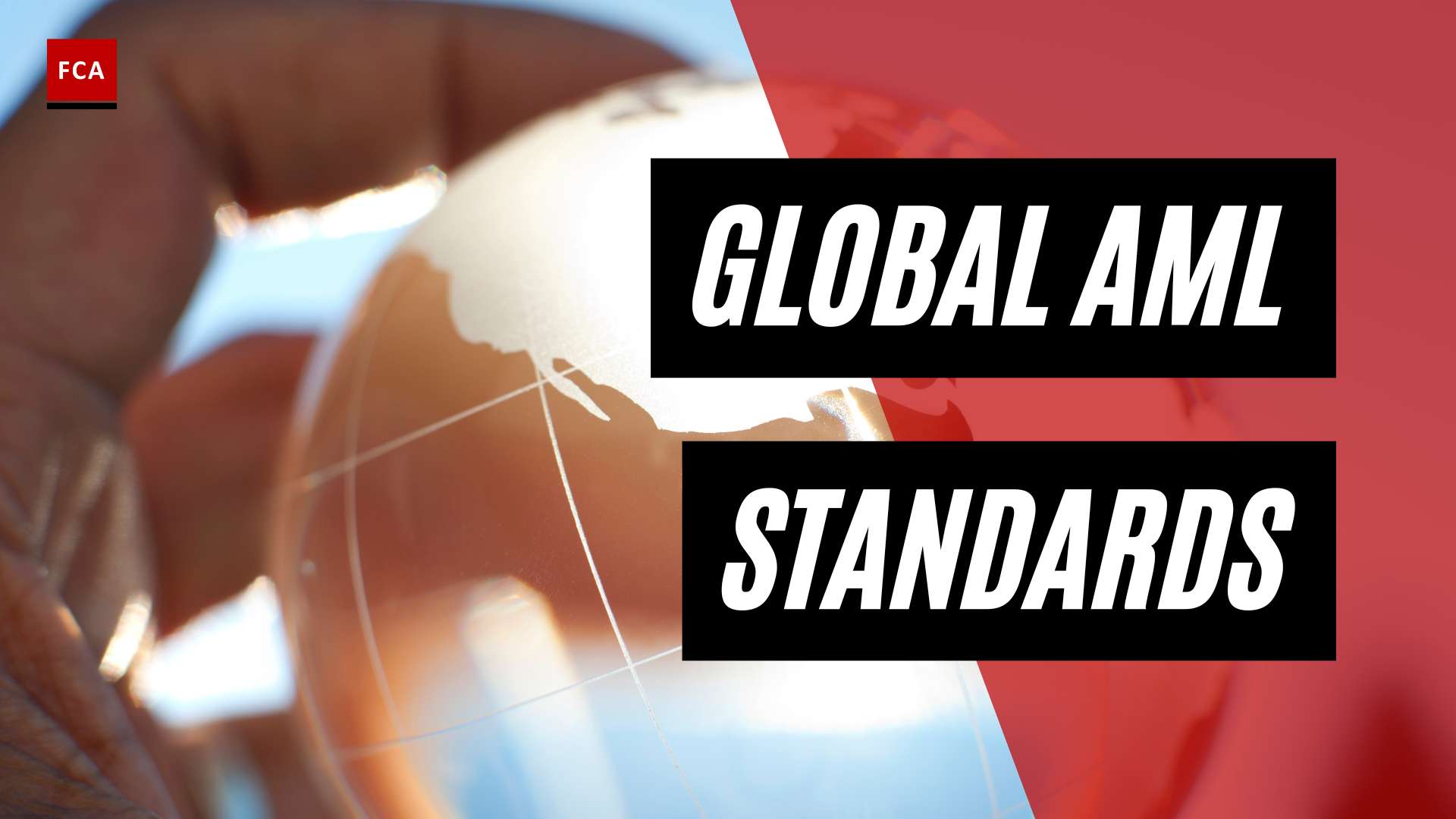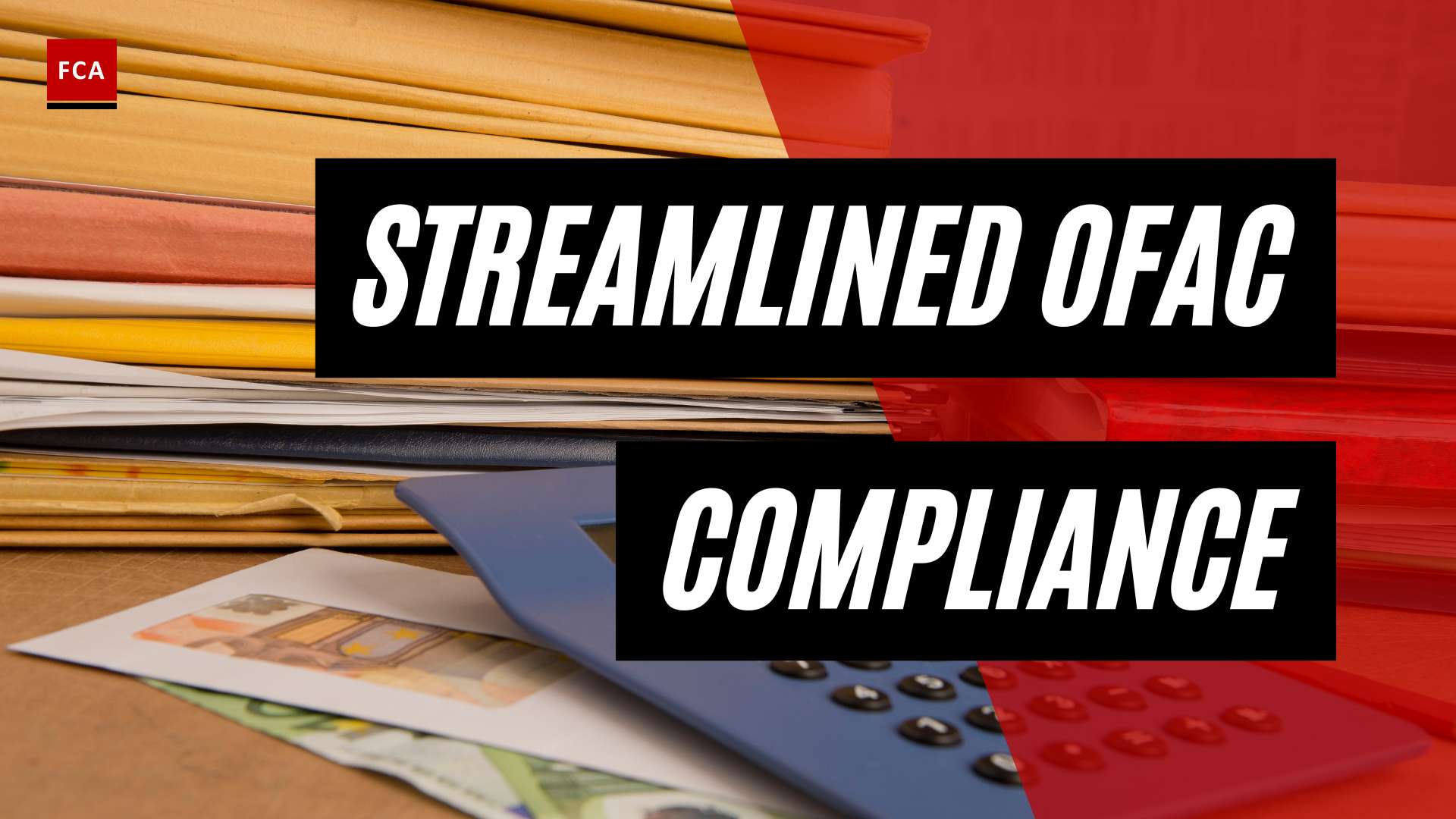Understanding Anti-Money Laundering (AML) Compliance
To effectively address the risks associated with money laundering and illicit financial activities, it is crucial to have a strong Anti-Money Laundering (AML) compliance framework in place. This section will provide a comprehensive understanding of AML compliance, its purpose, and its significance, particularly in emerging markets.
What is AML Compliance?
AML compliance refers to the set of rules, regulations, and processes that financial institutions and other regulated entities must adhere to in order to prevent and detect money laundering activities. Money laundering involves disguising the illegal origins of funds to make them appear legitimate. These illicit funds can be derived from various criminal activities, such as drug trafficking, fraud, corruption, and terrorism.
The primary objective of AML compliance is to ensure that financial systems are not exploited for money laundering purposes. By implementing robust AML compliance measures, organizations can mitigate the risks associated with financial crimes, protect their reputations, and contribute to the overall integrity of the global financial system.
AML compliance involves several key components, including customer due diligence (CDD), ongoing monitoring, suspicious transaction reporting, and internal controls. These measures are designed to identify and verify customers, monitor their transactions for any suspicious activities, and report such activities to the relevant regulatory authorities.
The Importance of AML Compliance in Emerging Markets
AML compliance is especially critical in emerging markets due to specific challenges and vulnerabilities present in these regions. Emerging markets often face regulatory challenges, political and economic instability, weak governance, and corruption, which can increase the risk of money laundering and illicit financial flows.
By strengthening AML compliance in emerging markets, financial institutions and regulatory bodies can minimize the risks associated with money laundering, protect the integrity of the financial system, and foster trust among international partners and investors.
Effective AML compliance in emerging markets requires a multi-faceted approach that includes robust risk assessment and compliance programs, strengthening regulatory frameworks, and international cooperation and information sharing. Organizations operating in emerging markets must navigate unique challenges related to limited access to reliable and verifiable data, cultural and language barriers, and differences in customer due diligence (CDD) standards.
To learn more about the specific AML compliance risks and challenges in emerging markets, refer to our article on AML compliance risks in emerging markets. Understanding these risks is crucial for organizations and professionals working in compliance, risk management, anti-money laundering, and anti-financial crime to develop effective strategies to mitigate them.
AML Compliance Risks in Emerging Markets
When it comes to Anti-Money Laundering (AML) compliance, emerging markets present unique challenges and risks. Understanding and addressing these risks are crucial for organizations operating in these markets. In this section, we will explore some of the main AML compliance risks faced in emerging markets, including regulatory challenges, political and economic instability, and weak governance and corruption.
Regulatory Challenges
Emerging markets often have evolving regulatory frameworks, which can pose challenges for AML compliance. The regulatory landscape may lack clarity, consistency, and enforcement, making it difficult for organizations to navigate and comply with the requirements. Additionally, regulatory bodies in emerging markets may have limited resources, expertise, and technology to effectively monitor and enforce AML regulations. This can result in a higher risk of non-compliance and potential vulnerabilities for illicit financial activities.
To mitigate these risks, organizations should stay up to date with the latest regulatory developments and engage in active dialogue with regulatory authorities. Implementing robust internal controls, conducting regular risk assessments, and investing in training programs can help organizations adapt to the changing regulatory environment and promote a culture of compliance.
Political and Economic Instability
Political and economic instability prevalent in many emerging markets can significantly impact AML compliance efforts. Unstable political environments, frequent leadership changes, and policy uncertainties can lead to inconsistent enforcement of AML regulations. Furthermore, economic instability, including high inflation rates, currency fluctuations, and limited access to financial services, can create an environment conducive to money laundering and illicit financial transactions.
Organizations operating in these markets must be vigilant and proactive in their risk management approach. Conducting thorough due diligence on business partners, customers, and transactions can help identify and mitigate potential risks. Additionally, implementing robust internal controls, such as transaction monitoring systems and suspicious activity reporting mechanisms, can enhance detection and prevention of money laundering activities.
Weak Governance and Corruption
Weak governance structures and high levels of corruption pose significant AML compliance risks in emerging markets. Insufficient transparency, lack of accountability, and bribery can undermine the effectiveness of AML measures and facilitate money laundering activities. Inadequate enforcement of anti-corruption laws and weak regulatory oversight further exacerbate these risks.
To address these challenges, organizations should prioritize building strong governance structures and fostering a culture of integrity. Implementing effective internal controls, conducting regular audits, and promoting ethical business practices are essential. Collaboration with local authorities, international organizations, and industry peers can also help combat corruption and strengthen AML compliance efforts.
Understanding and mitigating the AML compliance risks in emerging markets is crucial for organizations to protect themselves from financial and reputational harm. By staying informed, adapting to regulatory changes, and implementing robust risk management strategies, organizations can navigate the unique challenges posed by these markets and maintain a strong AML compliance framework.
Technological Risks in AML Compliance
As the world continues to undergo a digital transformation, technology plays a significant role in anti-money laundering (AML) compliance. However, this technological advancement also introduces new risks and challenges that organizations need to address. In the context of emerging markets, these risks become particularly pronounced. This section explores the technological risks associated with AML compliance in emerging markets, including digital transformation and increased risk exposure, as well as cybersecurity threats and data privacy concerns.
Digital Transformation and Increased Risk Exposure
The digital transformation of financial systems and transactions has revolutionized the way money moves across borders. While this has brought about increased efficiency and convenience, it has also exposed financial institutions to new AML compliance risks in emerging markets.
With the rise of online banking, mobile payments, and cryptocurrency, the volume and complexity of financial transactions have significantly increased. This presents challenges for organizations in effectively monitoring and detecting suspicious activities. Furthermore, the rapid adoption of new payment methods and technologies in emerging markets often outpaces the development of robust AML compliance frameworks, leaving organizations vulnerable to potential risks.
To mitigate these risks, financial institutions must invest in advanced technologies and sophisticated AML compliance systems. These systems should leverage artificial intelligence and machine learning algorithms to analyze vast amounts of data and identify patterns indicative of money laundering or terrorist financing activities. By embracing digital transformation and implementing robust risk assessment frameworks, organizations can better adapt to the evolving AML landscape in emerging markets.
Cybersecurity Threats and Data Privacy Concerns
As technology advances, so do the threats posed by cybercriminals looking to exploit vulnerabilities in financial systems. Emerging markets, with their growing digital infrastructure and increased connectivity, face heightened cybersecurity risks in the realm of AML compliance.
Cyberattacks can compromise sensitive customer data, facilitate identity theft, and undermine the integrity of financial institutions. Inadequate cybersecurity measures can lead to significant financial losses, reputational damage, and non-compliance with AML regulations.
In addition to cybersecurity threats, emerging markets also grapple with data privacy concerns. The collection, storage, and processing of customer data for AML compliance purposes must adhere to strict privacy regulations. Failure to protect customer information can result in severe penalties and erode customer trust.
To address these risks, financial institutions operating in emerging markets should prioritize cybersecurity measures such as implementing robust firewalls, encryption protocols, and intrusion detection systems. Regular employee training on cybersecurity best practices is essential to ensure that all staff members are equipped to identify and respond to potential threats effectively. Additionally, organizations must establish clear data protection policies and procedures, adhering to local and international privacy regulations.
By understanding the technological risks associated with AML compliance in emerging markets and implementing robust cybersecurity measures, organizations can safeguard against financial crimes and protect the integrity of their operations.
Know Your Customer (KYC) Challenges
When it comes to anti-money laundering (AML) compliance in emerging markets, Know Your Customer (KYC) processes play a crucial role in identifying and verifying the identities of customers. However, conducting effective KYC in these markets can pose unique challenges. Let’s explore some of the key challenges faced in KYC processes in emerging markets:
Limited Access to Reliable and Verifiable Data
One of the primary challenges in KYC processes in emerging markets is the limited availability of reliable and verifiable data. Unlike established markets, emerging markets may have underdeveloped or fragmented data infrastructure, making it difficult to access accurate and up-to-date information about individuals and businesses. This lack of reliable data can hinder the KYC process, making it challenging to perform proper due diligence and identify potential risks.
To mitigate this challenge, financial institutions and compliance professionals need to employ alternative methods to gather information. This may involve utilizing trusted third-party data providers, leveraging local networks and partnerships, and implementing robust risk assessment procedures to compensate for the limited data availability.
Cultural and Language Barriers
Emerging markets often have diverse cultural backgrounds and multiple languages spoken within their jurisdictions. These cultural and language differences can present challenges in effectively communicating and understanding KYC requirements and procedures. Misinterpretation or miscommunication can lead to misunderstandings, errors, and even potential compliance breaches.
To overcome these challenges, financial institutions and compliance teams should invest in cultural and language training for their staff. This can help ensure clear communication with customers and enhance the accuracy of the information gathered during the KYC process. Additionally, utilizing translation services or employing local staff familiar with the cultural nuances can aid in overcoming language barriers.
Differences in Customer Due Diligence (CDD) Standards
Another challenge in KYC processes in emerging markets is the variations in Customer Due Diligence (CDD) standards. Different jurisdictions may have different regulatory requirements and expectations when it comes to verifying customer identities, assessing risks, and conducting ongoing monitoring.
To address this challenge, financial institutions must stay updated with the AML regulations and guidelines specific to each emerging market they operate in. It is crucial to establish a comprehensive understanding of the local regulatory framework and tailor the KYC processes accordingly. This may involve conducting jurisdiction-specific risk assessments, adapting customer onboarding procedures, and implementing necessary controls to meet the specific CDD standards of each market.
By recognizing and addressing these KYC challenges in emerging markets, financial institutions and compliance professionals can enhance their AML compliance efforts and mitigate the risks associated with money laundering and financial crime. Implementing robust risk assessment procedures, strengthening regulatory frameworks, and fostering international cooperation and information sharing are essential steps in navigating the complexities of AML compliance in emerging markets.
Mitigating AML Compliance Risks in Emerging Markets
To effectively manage and mitigate Anti-Money Laundering (AML) compliance risks in emerging markets, organizations must implement robust risk assessment and compliance programs, strengthen regulatory frameworks, and foster international cooperation and information sharing.
Robust Risk Assessment and Compliance Programs
Developing a comprehensive risk assessment and compliance program is essential in mitigating AML compliance risks. This involves conducting thorough assessments of the organization’s exposure to money laundering and terrorist financing risks specific to the emerging market in which it operates.
Key elements of a robust risk assessment and compliance program include:
- Customer Due Diligence (CDD): Implementing stringent CDD procedures to verify the identity of customers, understand the nature of their business relationships, and assess the potential risks associated with those relationships.
- Transaction Monitoring: Deploying robust transaction monitoring systems to detect and investigate suspicious activities, including complex transactions and patterns that deviate from normal customer behavior.
- Ongoing Due Diligence: Continuously monitoring and reassessing the risk profiles of existing customers to identify any changes that may require enhanced due diligence or additional scrutiny.
- Employee Training and Awareness: Providing regular training programs to employees on AML compliance obligations, emerging market-specific risks, and best practices for identifying and reporting suspicious activities.
- Internal Controls and Audits: Establishing internal control mechanisms and conducting regular audits to ensure compliance with policies, procedures, and regulatory requirements.
Strengthening Regulatory Frameworks
To address AML compliance risks effectively, emerging markets need to establish and strengthen their regulatory frameworks. This includes enacting legislation that aligns with international standards and best practices, such as the Financial Action Task Force (FATF) recommendations.
Key areas of focus in strengthening regulatory frameworks include:
- AML Laws and Regulations: Developing robust AML laws and regulations that clearly define the obligations of financial institutions and other relevant entities, including reporting requirements, penalties for non-compliance, and mechanisms for international cooperation.
- Supervision and Enforcement: Enhancing the capabilities of regulatory bodies to effectively supervise and enforce AML compliance, including conducting inspections, imposing sanctions, and collaborating with other authorities.
- Risk-Based Approach: Encouraging the adoption of a risk-based approach to AML compliance, where resources are allocated based on the level of risk posed by customers, products, services, and geographic locations.
- Public-Private Partnerships: Promoting collaboration between public and private sectors to share knowledge, expertise, and best practices in AML compliance, fostering a collective effort to combat money laundering and terrorist financing.
International Cooperation and Information Sharing
Given the cross-border nature of money laundering and terrorist financing, international cooperation and information sharing are crucial in mitigating AML compliance risks in emerging markets.
Key aspects of international cooperation and information sharing include:
- Mutual Legal Assistance: Establishing mechanisms for mutual legal assistance and extradition to facilitate the exchange of information and evidence between countries for the investigation and prosecution of money laundering and related offenses.
- Financial Intelligence Units (FIUs): Strengthening the capacity and effectiveness of FIUs to receive, analyze, and disseminate suspicious transaction reports and other relevant information to domestic and international counterparts.
- Bilateral and Multilateral Agreements: Entering into bilateral and multilateral agreements to enhance cooperation on AML compliance, intelligence sharing, and joint investigations.
- International Organizations and Initiatives: Collaborating with international organizations, such as the FATF, World Bank, and International Monetary Fund, to access technical assistance, capacity building programs, and expertise in AML compliance.
By implementing robust risk assessment and compliance programs, strengthening regulatory frameworks, and fostering international cooperation and information sharing, organizations and countries can effectively mitigate AML compliance risks in emerging markets and safeguard the integrity of the global financial system.









